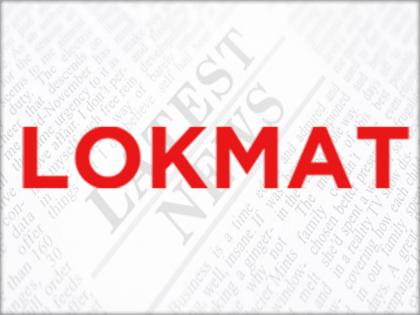Rajya Sabha passes National Medical Commission Bill, 2019
By ANI | Published: August 1, 2019 06:54 PM2019-08-01T18:54:10+5:302019-08-01T19:05:06+5:30
The Rajya Sabha on Thursday approved the National Medical Commission (NMC) Bill, 2019 by a voice vote with Health Minister Harsh Vardhan saying the Bill will go down in history as the biggest reform of the Narendra Modi government.

Rajya Sabha passes National Medical Commission Bill, 2019
The Rajya Sabha on Thursday approved the National Medical Commission (NMC) Bill, 2019 by a voice vote with Health Minister Harsh Vardhan saying the Bill will go down in history as the biggest reform of the Narendra Modi government.
The NMS Bill that seeks to create National Medical Commission in place of Medical Council of India (MCI) has already been passed by the Lok Sabha.
"When history will be written, this Bill will be recorded as the biggest reform of the Narendra Modi government. You may mock the Bill but when it is passed today, the day will be written in golden words," he said while replying to the debate.
The Bill was cleared by the Parliament amid stiff protest from the medical fraternity who fear it would lead to deterioration of medical education and degradation of healthcare services.
Harsh Vardhan asserted that the changes being brought in the medical education would lead to a better future and the medical students, aspiring doctors and those in the profession need not to worry.
"I have fought for the rights of medical associations. I have always for preserving and protecting the integrity of the medical profession. It will bring qualitative changes in medical education," he said.
He also dispelled apprehensions raised by some of the members about NEET and NEXT exams, community health providers, reservation of the states and institutionalising quackery.
On members' doubts on community health providers, he said that community health providers is a concept which has been adopted by even developed nations.
"21 of the 25 members of the NMC are doctors and they will decide what will be the minimum qualification required to be community health providers. This is a WHO-approved practice," he said.
On concerns over less representation of states in the NMC, the Minister said of the 25 members of the council, 11 are state representatives.
The Minister also clarified concerns over NEET and NEXT examinations.
"NEET is already an institutionalised mechsm. The examination has been successfully accepted by aspiring doctors and is in 13 languages. The syllabus takes into consideration the syllabus of various boards," he said.
He said 40,000 of 80,000 of MBBS seats are under government institutions and there will be a cap on fees too.
"This Bill is aimed at the rapid expansion of medical seats while maintaining the quality of medical education and reducing cost. The need is to spur investment in education by simplifying procedures and focus on outcomes," he added.
Opposing the Bill, Congress' Jairam Ramesh said, "Health is a state subject, 75 per cent of the health expenditure is done by the state government and the Centre wants to control that."
He urged the government to drop a provision which he said will "legalise quackery" under Section 32 of the bill and refer it to a Select Committee because this provision was not in the original bill that was vetted by a Parliamentary Standing Committee on Health.
The former union minister said the current representation of members in the NMC is against the interest of states.
Ramesh also asked whether the Exit Exam proposed in the NMC Bill will be a test of theoretical knowledge or that of clinical capability as well.
"Medical is not engineering. There has to be a clinical component," he said.
Opposing the NEET and NEXT examinations as envisioned in the NMC BILL, AIADMK's Vijila Satyananth said the Tamil Nadu students are tested on CBSE syllabus in a combined entrance test for all medical colleges instead of the state board's syllabus.
"The government should first introduce a standard education policy and system across the country and only then can they impose a common entrance test across the country," she said.
Another party member A Navaneethakrishnan urged the Centre to revisit the community health providers tag for those who aren't qualified doctors.
Soon after the minister's reply, the AIADMK members staged a walkout.
Santanu Sen of Trinamool Congress opposed the Bill and sought it to be sent to the Select Committee.
"The Bill is of the ambiguous, for the ambiguous. The elected representatives who are doctors and the search committee that will appoint the National Medical Association will all be central government employees. It is unlikely that a central government employee, even if he is a doctor, will go against the government's will," he said.
He said that 70 per cent of seats in private colleges are currently regulated by the central or respective state governments.
"However, the government has given private institutions completely free reign on 50 per cent of the seats, and even in the remaining 50 per cent seats, the government has said it will only review the criteria of selection. Does this mean you are leaving all 100 per cent seats in private colleges free to be sold off at whatever price these colleges like," he asked.
The NMC provides for the repeal of the Indian Medical Council Act 1956.
The Bill provides that the common final year MBBS exam be known as National Exit Test (NEXT) which would serve as a licentiate exam for entrance to post-graduate medical courses and as a screening test for foreign medical graduates.
( With inputs from ANI )
Open in app